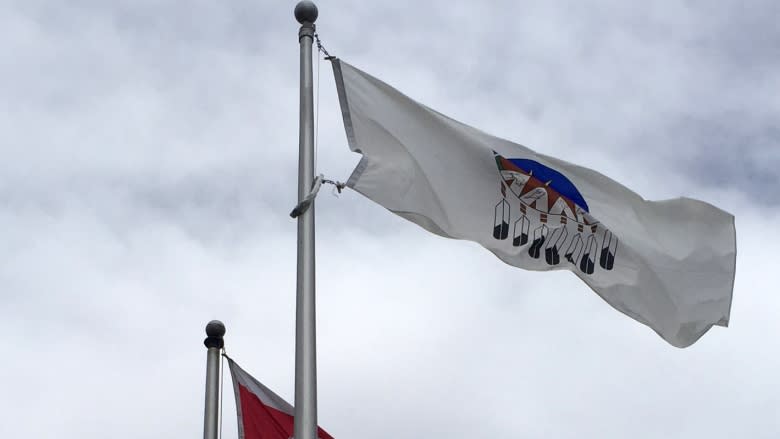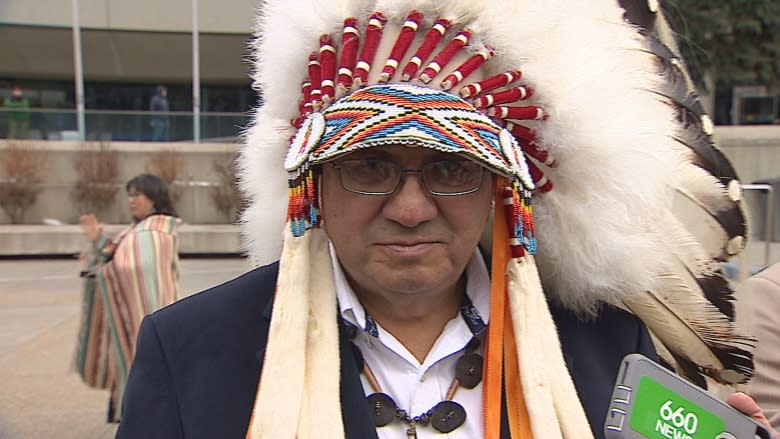Treaty 7 flag raised permanently at Calgary City Hall
Calgary hoisted the Treaty 7 flag outside city hall on Thursday as a reminder that the city sits on traditional Indigenous land.
It will fly permanently alongside the flags of Calgary, Alberta, Canada and the United Kingdom.
Recognizing the Treaty 7 nations with a flag is just one part of the city's response to the Truth and Reconciliation Commission, which examined what happened to Indigenous peoples in Canada's residential schools.
After the flag raising ceremony, Blood Tribe Chief Roy Fox said he was pleased with the city's decision.
"I think it's significant in the fact that people realize the importance of trying to understand and appreciate each other as people that may be different," he said.
"Your political leader, Mayor (Naheed) Nenshi, and the council of Calgary are willing to communicate with us honestly, willing to look at how we may be able to better the situation of not just Calgarians in general, but those that are from Indigenous nations."
Nenshi said it's an important step that helps move Calgary along the path of reconciliation.
"This flag is a small gesture, but gestures matter. This is a gesture that says you belong here, to everyone," he said.
The City of Calgary has also renamed the Langevin Bridge as part of its reconciliation efforts. An official renaming of the span — calling it Reconciliation Bridge — could happen as early as June.
Treaty 7 was signed in 1877 by Queen Victoria and the leadership of the Siksika (Blackfoot), Kainai (Blood), Piikani (Peigan), Stoney-Nakoda, and Tsuut'ina (Sarcee) First Nations.
- MORE ALBERTA NEWS | Stone-age roadshow in High River planned to enlighten collectors
- MORE ALBERTA NEWS | Namaste in the straw: doing the downward dog with goats in rural Alberta



